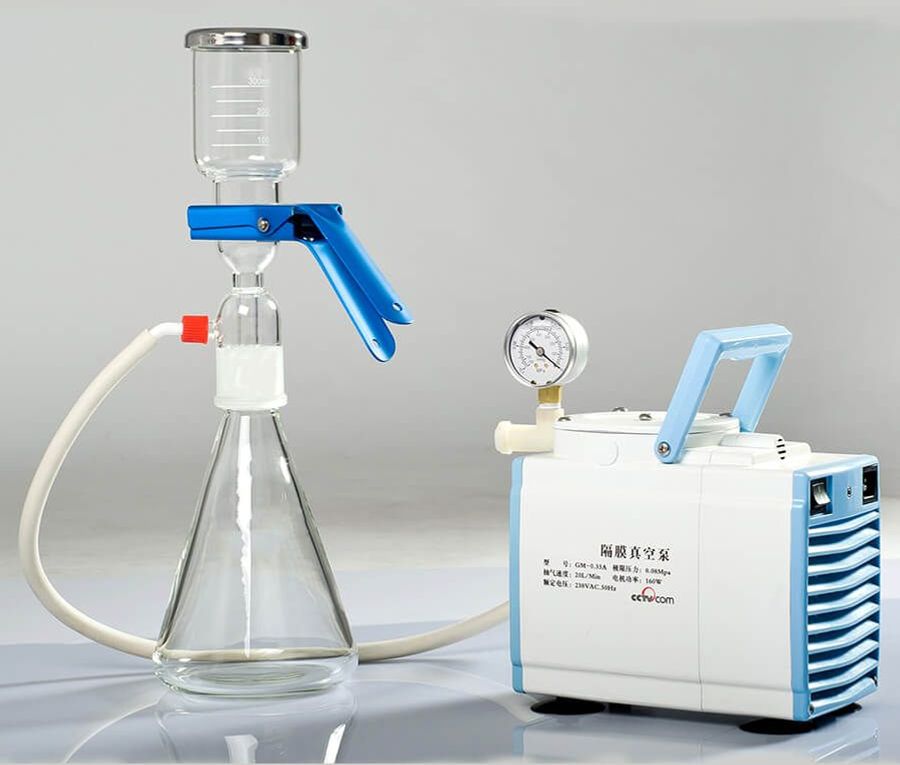When it comes to research, having all the necessary equipment is essential for better results. From small items such as flasks and filters to more significant equipment such as centrifuges and incubators, they all contribute to the general scheme of providing a more accurate outcome.
One of the most significant materials found in labs is the laboratory vacuum pump. Both scientists and engineers use this equipment in several functions such as the following:
- Liquid Filtration
- Reduction of Vapor Pressure
- Collection of Gas Samples

Kinds of Vacuum Pumps for Laboratory Use
However, a laboratory vacuum pump also comes in four kinds, the selection of which would vary depending on the application. If you want to find out about it, here are the four types of vacuum pumps for laboratory use.
Rotary Vane Vacuum Pumps
As the cheapest vacuum pump, rotary vanes have become the most commonly used kind. It is best for tests requiring continuous suction and the extraction of dry gas. Rotary vane vacuum pumps are necessarily a very straightforward type of equipment as researchers can use it directly in the atmosphere. Such material also has the necessary air filters, which helps remove unwanted minute dust particles.
Diaphragm Vacuum Pumps
Unlike Rotary Vane pumps, a Diaphragm Vacuum Pump does not need oil. It uses a rotating piston, which moves its diaphragms to do the suction. This type of laboratory equipment is preferable to specific functions such as filtration, liquid degassing, and backing pumps. However, a specialized kind of diaphragm pump, such as those designed for chemistry usage, is best for evaporative tests.
Combination Vacuum Pumps
Like its name, this type of vacuum pumps consists of the combination of both rotary vane and diaphragm vacuum pump in one single piece of equipment. Because it consists of the best qualities of both types of vacuum pumps, its usage pertains to substantial duty activities that use acidic and harsh chemicals.
Scroll Vacuum Pumps
Lastly, the Scroll Vacuum Pumps are for non-hazardous applications such as freeze-drying. It is a dry pump, so there is no need of oil for it to function. Some of its advantages include having a quiet operation and minimal maintenance. However, it is less popular amongst laboratories as parts usually need replacement at constant intervals.
How to select a vacuum pump for laboratory use
A significant factor in the selection of vacuum pumps highly depends on the application. For basic suction applications, a dry pump is usually the best option in tests such as filtration and aspiration. Substantial activities would necessarily use oil-based machines.
On the opposite, you also have to consider pumping speed in selecting your pumps. Pumping speed is crucial as it determines the rate of vapor movement. The higher it is, the faster would processes as evaporation would happen.
There is also the factor of determining the lower pressure level that the pump provides. The pressure level determines the level at which the pump will no longer be able to allow evaporation. You have to take into account the substances that you would most likely be working with, whether they are corrosive or not.
Purchasing vacuum pumps for laboratory use
Most laboratory equipment, such as vacuum pumps, does not come cheap, which is why you must be knowledgeable about the different types before you purchase one.

